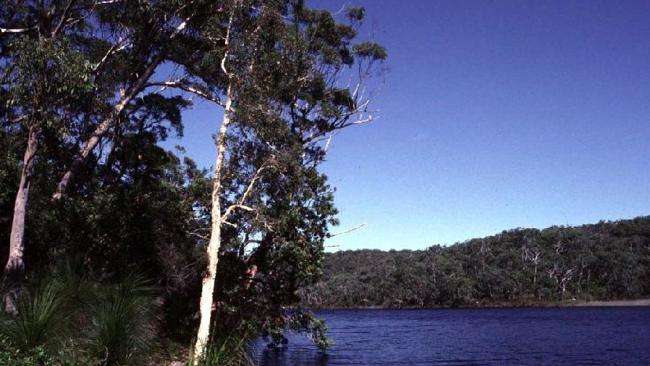God's bathtub: Australian lake untouched by climate change
A UNIQUE Australian lake has remained untouched by climate change for thousands of years, say scientists.

SCIENTISTS have identified a unique Australian lake which has been untouched by climate change and appears to be in the same condition as it was 7500 years ago.
Blue Lake, one of the largest lakes on North Stradbroke Island, off the south Queensland coast, has been the focus of a project by University of Adelaide researchers.
They studied the lake's water discharge, water quality and comparisons of historical photos over 117 years, as well as fossil pollen and algae, to understand its history over thousands of years.
The results, published online in the journal Freshwater Biology, show the lake has remained relatively stable and resilient for millennia.
The study's lead author Cameron Barr says Blue Lake is more than 10 metres deep but is so clear you can see to the bottom.
"It's like God's bathtub," Dr Barr said.
"It is beautiful. It is absolutely beautiful."
The researchers were surprised the lake had not changed - in shape, size or in its chemistry - and could find no report of another lake like it in Australia.
He noted it was a sand island and the water was continually replenished, on average every 35 days.
"We know that there have been variations in climate in the region including North Stradbroke Island over recent decades, but during that time the depth, shoreline and water chemistry of Blue Lake has displayed little variation," Dr Barr said.
"We also know that the region experienced a significant shift towards a drier climate around 4000 years ago."
Again, the lake had demonstrated little variation over this period, in stark contrast to other changes in the region owing to shifts in climate.
"It appears that Blue Lake has been an important climate 'refuge' for the freshwater biota of the region, and is in the same condition now as it was 7500 years ago," Dr Barr said.
"With appropriate management, the lake could continue relatively unchanged for hundreds, possibly thousands of years to come." Asked if an influx of tourists could change the lake, Dr Barr said he could not speculate.
But he said Fraser Island had experienced a similar issue when people wearing sunscreen had introduced chemicals into its lakes.
###



